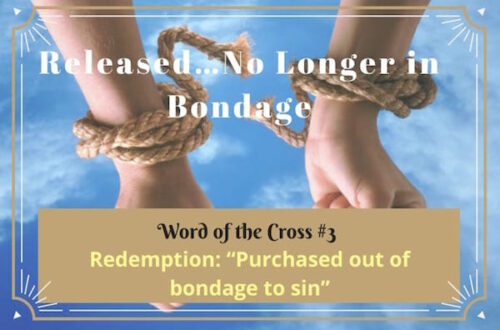Things Are Feeling a Little um…Apocalyptic Lately: Is this God’s judgment?
Like an opening fanfare we experienced a total eclipse of the sun. As a native Houstonian living in Columbia, South Carolina, we've been writing checks and sending Facebook touches to Harvey-flooded friends back home and lashed down our deck furniture in anticipation of Irma. What are the odds that two of the worst hurricanes in American history would hit back to back? And then there’s Maria coming right behind…
Friends who were headed to Montana cancelled. Montana is choking on the smoke from fires that have burned over 1,000,000 acres this summer. The schools in Olympia, Washington, where my cousins live, have cancelled sporting events because of the smoke from nearby fires. The largest solar flare in a decade disrupted communications. And CNN interrupted their coverage of Irma to report on an 8.1 earthquake off the west of Mexico.
Meanwhile, over in North Korea, seismologists suspected an earthquake that turned out to be a guy barely out of his 20’s exploding a hydrogen bomb.
As pastor friend Jay Sanders writes, “If you read the Bible, you know what all of this means.
“It means that theological con-men will be coming out from under every rock to tell us that Jesus will be coming back on September 23, 2017.”
Preaching into the social media megaphone, their analyses of blood moons, constellations, and eclipses warn of, “Judgment! Destruction!”
But in daily conversations, even if questions of what God might be up to flicker into our minds, many Christians won’t mention it. To even raise the question, “Are we experiencing God’s judgment? Is it going to get worse?” violates the ban on sin and judgment in polite conversation on the one hand, and aligns us with the con-men who presume to know the dates and players on God’s Armageddon timeline on the other.
Sensitive to this, my husband Jack has begun a fall sermon series on the Minor Prophets. That may not sound very sensitive. But each week he is simply laying open the messages and visions that God gave his prophets–unpacking what Israel did and how God responded in his own words: “[Israel has played the whore.” “[Israel] is oppressed, crushed in judgment, because he was determined to go after filth.”
We may not talk this way. But God does. He despises bribery, trampling the poor, indulging in comfort and great houses while they suffer, sexual immorality, pursuing idols—anything we love more than him. The applications are obvious.
He speaks truth about the path to human flourishing. He tells Israel and Judah that no one else can heal their wounds. Healing always begins with "returning." New or renewed intimacy with him. And then as now, for speaking truth he is judged as cruel and intolerant. “They hate him who reproves in the gate, and they abhor him who speaks the truth” (Amos 5:10).
While people cringe over his straight talk about our problem and his radical solution, what gets overlooked is his profound tenderness and compassion.
So many want to think exclusively in terms of woundedness and compassion. They want all mercy all the time. God speaks mercifully too. In the midst of prophecies about armies of locusts that will devour every green shoot or soldiers that will “dash their little ones in pieces” he lays open his own heart and speaks longingly and compassionately to his people:
From Hosea:
And [my people] did not know that it was I who gave her the grain, the wine, and the oil, and who lavished on her silver and gold…and [she] forgot me, declares the LORD.
How can I give you up, O Ephraim? How can I hand you over, O Israel?…My heart recoils within me; my compassion grows warm and tender.
Therefore, behold, I will allure her, and bring her into the wilderness, and speak tenderly to her. And there I will give her her vineyards and make the Valley of Achor a door of hope…And I will abolish the bow, the sword, and war from the land, and I will make you lie down in safety. And I will betroth you to me forever. I will betroth you to me in righteousness and in justice, in steadfast love and in mercy. I will betroth you to me in faithfulness. And you shall know the LORD.
From Joel:
‘Yet even now," declares the LORD, "return to me with all your heart, with fasting, with weeping, and with mourning; and rend your hearts and not your garments.’
Return to the LORD, your God, for he is gracious and merciful, slow to anger, and abounding in steadfast love; and he relents over disaster. Who knows whether he will not turn and relent, and leave a blessing behind him…?
I will restore to you the years that the swarming locust has eaten…
It is good to ponder whether God is possibly stirring up these calamities in judgment. (Obadiah clearly shows us there are "final straws.") We may never know where the enemy’s efforts to kill, steal and destroy end and our Father’s efforts to discipline, redeem and restore begin, or if judgment even figures in. As Paul wrote the Romans, “how unsearchable are his judgments, and his ways past finding out.” But we know that even when he brings or allows destruction, this is his heart: We have no idea how much he loves us.
The outpouring of sacrificial love in Houston to rescue and tear out and rebuild is an echo of the ultimate expression of sacrificial love: the God that is mightier than the hurricane, the flood or the earthquake became a babe born in a barn, who laid down his life for us. He became sin for us so we could become his righteousness and enjoy him forever.
Is this God's judgment? is the wrong question. The power of God's word and these 1, 2, 3, 4 and more calamities jolt us out of complacency and compel us to reflect and ask the right questions: Do I look like the Israel or Judah that grieved God? Do I share any of their indifference…or sin? What am I prepared to do so that "justice rolls down like mighty waters" (Amos, then MLK)? If I seek God's shelter in the storm, do I also welcome his accountability? Am I seeking God, drawing close, or is there some distance there?
Hosea’s invitation still stands:
Come, let us return to the LORD; for he has torn us, that he may heal us; he has struck us down, and he will bind us up. After two days he will revive us; on the third day he will raise us up, that we may live before him. Let us know; let us press on to know the LORD; his going out is sure as the dawn; he will come to us as the showers, as the spring rains that water the earth.
What have you been thinking about what even the insurance companies call "acts of God"? Please respond in the comments section below…




One Comment
Christen Jacobs
Job
I enjoyed your piece! I have a friend who got swept up into the September 23 thing. He is a co-laborer in ministry and personal friend. He lost his ministry position as a result of his unwavering trust in the September 23 movement. On Saturday all I could think about was him and his family. I was up when 11:59 turned to 12:00am and I couldn't help but wonder what he and all the others like him were thinking at that hour. Because this hit so close to home this time around I've spent more time wondering how in the world people get caught up into the sensationalism of trying to name the day and the hour when even Jesus said no man knows even in his humanity he credited that knowledge to the father. I really don't know that the genesis of a good level-headed Christian leader falling prey to such strange doctrine is, But I think it may have something to do with pride and a lot to do with thinking we know more of God than we actually do. Don't get me wrong of course we know that God is both transcended and also imminent and he wants us to know him through his word, But God is so highly other and so vast that we cannot even begin to comprehend what He is doing and when he is doing it. In another bible study I am doing we are studying Job and are currently finishing up with chapter 41. The whole time Job has been focusing on the why and how of his suffering. As a reader of Job you kind of expect God to swoop in and defend him against his friends who try to condemn him. You almost expect God to swoop him up then and tell him "Job you are right you have not sinned." But God's response is unexpected instead of explaining himself (which we need to realize he does not need to do) He simply answers but painstakingly describing to how great God is and how high above his creation the creator truly is. Much like your article, the Bible study suggested that we ask the wrong questions and I think the book of Job demonstrates that beautifully. When God begins his speech about his vast greatness you may first assume this is a chastisement to Job for his fleshy thinking, however, I was reminded today even in calamity it's God drawing near to his people as if to say hey I am here, I see you and I know you. God's answer to Job may not be what he wanted or what we expected but from this we do learn that God didn't leave Job alone in his suffering, in fact, the greatest honor for Job was that God cared enough to draw near to him to speak to his situation and in that, that is a demonstration of God's grace toward us.